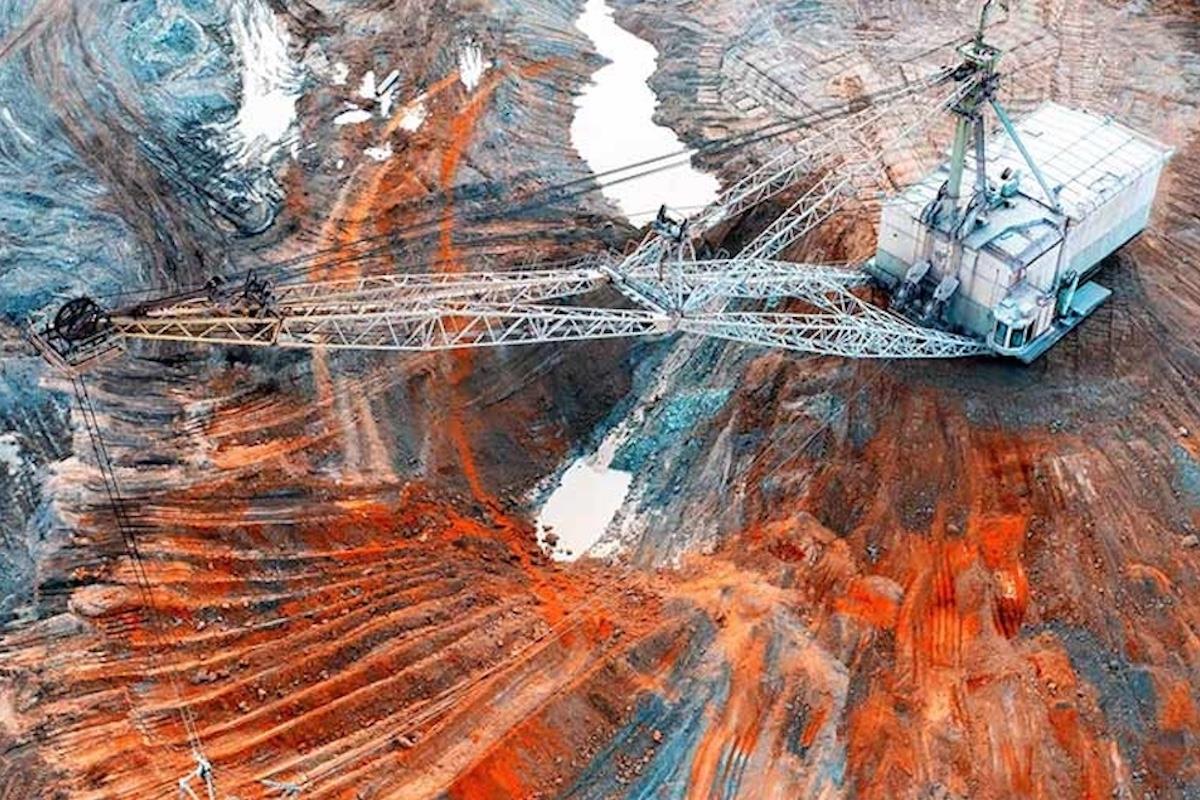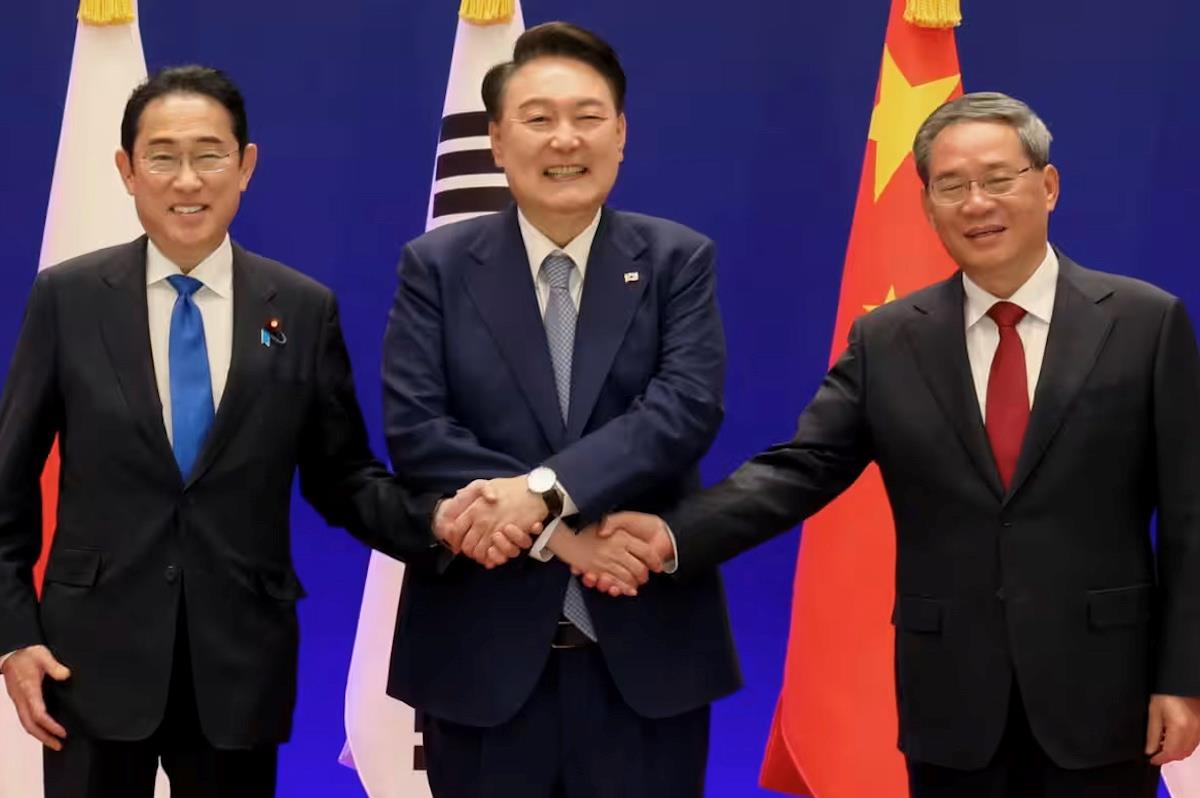Latest stories

Vietnam's great untapped rare earth bounty

Why Japan and South Korea are rediscovering China

India should think long and hard about joining AUKUS While unclear whether the Chinese government is directly behind these donations, the Chinese government, particularly the Ministry of Foreign Affairs and the Ministry of State Security, has been aggressively using Chinese communities across Latin America to spread its interests and influence while at the same time monitoring Chinese nationals through overseas police stations .
The first vice chairman reiterated that around $1 million has been donated by the Chinese community in Brazil for the flooding, adding that China expresses“condolences to the victims of the torrential rains, sorrow for the lives lost and solidarity with the bereaved families, the injured and the population of the affected areas.”
Li expressed confidence in President Lula's leadership and assured him that China would provide more help as needed. Similarly, the Lula government has expressed
solidarity with China
over the flooding in Southern China.
This is not the first time that China has helped Brazil in the face of humanitarian and climate catastrophes. The Chinese government and affiliated companies have provided billions of dollars in loans, financing, and technical support to Brazil to better prepare for disasters.
In April, Chinese state-owned company State Grid Corporation of China promised to provide more than $40 billion to Brazil to strengthen its
electrical grid , partly in response to disasters. In 2022, Chinese companies rushed to help the city of
Petrópolis
after it was devastated by flooding and mudslides that killed at least 231 people.
Both China and Brazil are facing historic flooding. China's idea of“sponge cities” with basins meant to absorb torrential rains has been floated as a policy solution in Brazil.
Still, Chinese humanitarian and technical assistance to Rio Grande do Sul has flown mostly under the radar. No major Brazilian or international media outlet covered China's efforts. Brasil de Fato, a newspaper largely aligned with President Lula and the left in Brazil, was the largest outlet to share news about China's efforts.
To that effect, Mauricio Santoro, Professor and Head of the Department of International Relations at the State University of Rio de Janeiro, shared with The Diplomat that“left-wing websites gave a little more space to China, as part of a worldview that highlights the importance of the Global South in Brazilian foreign policy.”
Xinhua Net
and other Chinese propaganda outlets also shared very short, under-promoted summaries.
CGTN , a state-run TV and web outlet, also did not mention any of China's humanitarian efforts in Rio Grande do Sul in its reporting.
The BND funding was not reported by any outlet, including the Chinese and Brazilian governments, as being directed by China, despite China exercising immense power over the funding and activities of the BND. When the BND was created in 2014, it was hailed by China analysts as a tool for China's
economic statecraft .
There could be a few credible factors to explain the lack of press (and state propaganda) behind China's humanitarian efforts in Rio Grande do Sul.
Santoro spoke to these factors, stating that“humanitarian aid to Rio Grande do Sul has become a controversial topic in Brazil, part of the country's political polarization, with the government and opposition accusing each other of incompetence, negligence, hindering volunteers, and so on.”
Santoro added that“so far, Chinese aid has not become part of the discussion but this could happen, as has already happened with Elon Musk's (Starlink network) aid to Rio Grande do Sul.” Elon Musk is currently stuck in a feud against the Brazilian Supreme Court over the legal body's order that X (formerly Twitter) ban several accounts.

Sign up for one of our free newsletters The Daily ReportStart your day right with Asia Times' top stories AT Weekly ReportA weekly roundup of Asia Times' most-read stories
While financial resources behind China's propaganda effort are virtually limitless, the decision not to amplify China's support to Rio Grande do Sul appears to have been calculated. There is a certain political cost for both the Chinese government and the Lula administration for being perceived as being too entangled.
There has been increased scrutiny placed on Lula for being too“pro-China ,” in a country historically placed under the umbrella of US foreign policy arguably since the Cold War. There could conceivably be a backlash to an augmented media campaign accompanying the humanitarian effort.
Santoro also argued that“the topic of international aid has not received much attention in the Brazilian press, largely because the main attention is on conflicts between the federal government and local authorities in Rio Grande do Sul.”
Having the aid go through the BND and the Chinese community, with minimal media coverage, would mitigate any political damage while continuing to improve bilateral relations and address genuine local needs.
The Lula administration, by advertising the move as a success to a receptive crowd at Brasil de Fato and Agência Brazil, bolsters his domestic political base without gaining much traction from the right wing. China was likely aware of this and adopted a timid public relations strategy to keep a low profile while still accomplishing its objectives.
It remains to be seen whether China will adopt a more aggressive media posture in Latin America in the future, given the shifting level of reception to Chinese influence in the region.
Joseph Bouchard is a freelance journalist and geopolitical analyst on Latin America from Quebec City, Canada, based in the region.
Already have an account?Sign in Sign up here to comment on Asia Times stories OR Thank you for registering!
An account was already registered with this email. Please check your inbox for an authentication link.